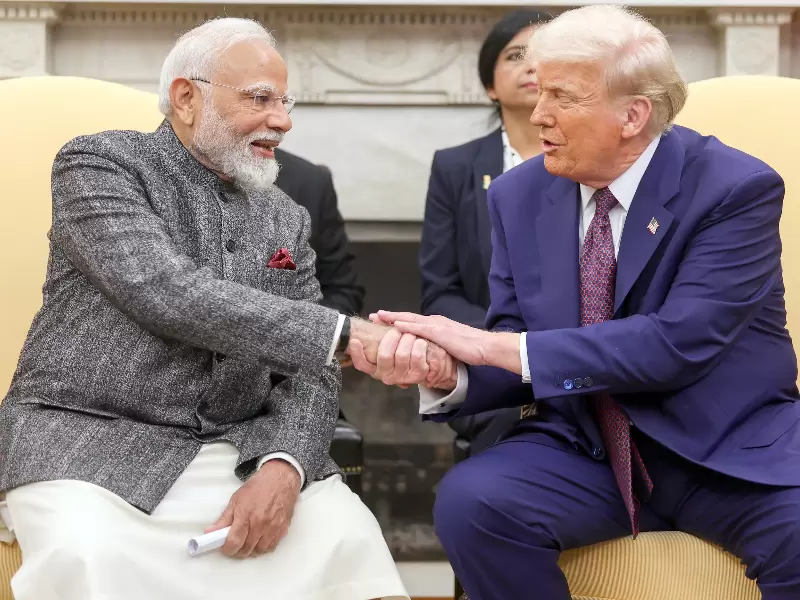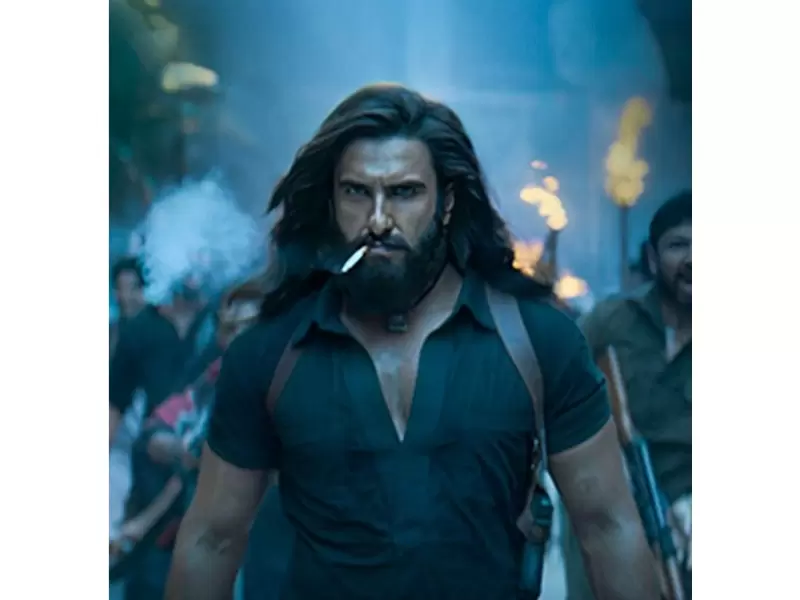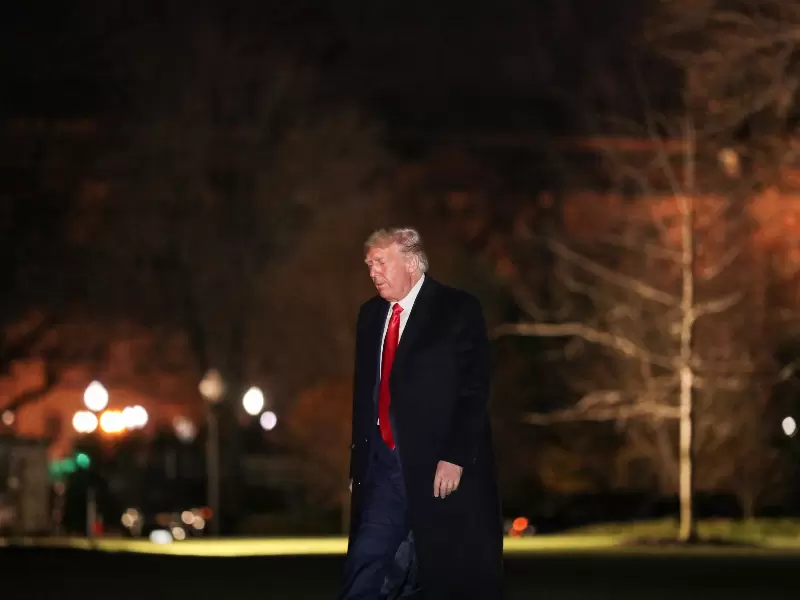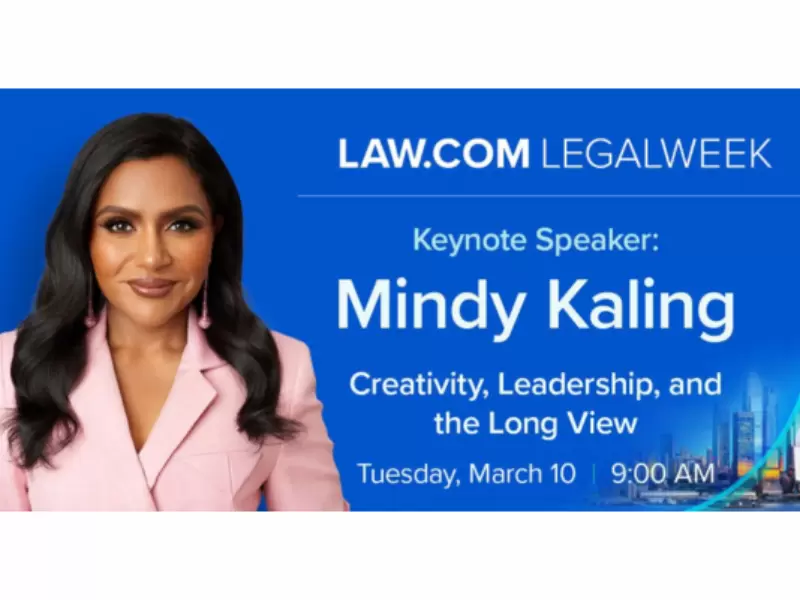Trump wants more deals like Intel's, worrying business community
The White House announced a near-10 percent stake in chipmaker Intel on Aug. 22 that converts government grants into an equity share.
.JPG) FILE PHOTO: Intel's CEO Lip-Bu Tan speaks at the company's Annual Manufacturing Technology Conference in San Jose, California, U.S. April 29, 2025. / REUTERS/Laure Andrillon/File Photo
FILE PHOTO: Intel's CEO Lip-Bu Tan speaks at the company's Annual Manufacturing Technology Conference in San Jose, California, U.S. April 29, 2025. / REUTERS/Laure Andrillon/File Photo
U.S. President Donald Trump said he wants to make more investments in healthy U.S. companies on Aug. 25. Whether Corporate America is on board is another story.
The White House announced a near-10 percent stake in chipmaker Intel on Aug. 22 that converts government grants into an equity share.
Also Read: Trump crime crackdown deploys troops in Washington's safest sites
Trump doubled down on the idea of similar deals in other sectors on Aug. 25, telling reporters at the White House, "I hope I'm going to have many more cases like it."
The administration's approach upends a decades-old view of the U.S. economy, in which the government only took corporate stakes in rare emergencies like the 2008 global financial crisis and the subsequent bailout of U.S. auto companies. Intel is struggling, but still has a cash cushion of $9 billion and a market value of $105 billion.
To critics, the Intel move - along with the White House's pressure on the U.S. Federal Reserve to lower interest rates, its use of emergency powers to slap tariffs on imported goods and involvement in various mergers - threatens the U.S. business world's nimbleness.
"We're moving from a pure capitalistic economy to a much more state-engaged economy... That's a huge change for America and over where we've been. I've never seen an era like this," said Bill George, former Medtronic CEO and executive education fellow at Harvard Business School.
Trump said in a social media post on Monday that he would help companies that make similar "lucrative" deals with U.S. states, but did not provide details. He has said the U.S. needs more production capacity in critical industries rather than outsourcing manufacturing to other countries.
However, the risks of the government's involvement were apparent in Intel's own regulatory filing on Aug. 25, in which it laid out several new risks to the government's investment - from potentially harming international sales to making it harder to win additional government grants, to additional regulations or restrictions in other countries.
In a video posted on Aug. 25 by the Commerce Department, Intel CEO Lip-Bu Tan said: "I don't need the grant," adding, "but I really look forward to having the U.S. government be my shareholder."
Some Republicans criticized the move, with Kentucky Senator Rand Paul calling the Intel stake a terrible idea.
"If socialism is government owning the means of production, wouldn’t the government owning part of Intel be a step toward socialism?" Paul said.
Analysts also questioned how the Intel deal will affect customers.
"Is it conceivable that as part of something like this the administration might 'encourage' customers to use Intel’s capacity?" Bernstein analyst Stacy Rasgon wrote in a note last week.
INVOLVEMENT IN OTHER SECTORS
Intel is not the only company in which Trump has become personally involved.
The White House intervened to complete the purchase of U.S. Steel by Japan's Nippon Steel in June, taking what Trump called a "golden share" that gives Washington say over its operations.
It took a stake in rare earths company MP Materials, and brokered a deal with chipmakers Nvidia and AMD to take 15 percent of revenue from sales to China of chips that had previously been prohibited. On Aug. 25, White House economic advisor Kevin Hassett said the government could take additional stakes in other companies.
No business issue seems too small to escape Trump's eye. He applauded American Eagle's controversial ad campaign for jeans featuring actress Sydney Sweeney, which some criticized for possibly raising genetic traits in a racial context. He suggested Goldman Sachs hire a new economist after the firm said consumers would eventually bear the brunt of Trump's import tariffs.
"The president of the United States is telling Goldman Sachs they should fire an employee? That's crazy," said Nell Minow, chair of Portland, Maine-based ValueEdge Advisors.
Numerous CEOs met with Trump shortly after his re-election in November 2024, and that parade of visitors has continued into his term.
Representatives from industry groups say their ability to find an audience with the administration comes through having CEOs from the largest companies reach out to the White House.
Even so, they have still found themselves blindsided at times, particularly around trade, where Trump has levied heavy tariffs on importers of overseas goods. A retail industry lobby group source said its members largely agree that frustration with Trump's trade policy is universally shared.
The CEO meetings have yielded moments of spectacle, such as earlier this month when Apple CEO Tim Cook gifted Trump a customized souvenir plaque with a 24-karat gold base mined from Utah.
The smartphone giant, valued at more than $3 trillion, has been trying to shift production from China, which Trump targeted in his first-term trade war, to India, a move Trump has also criticized. Apple has announced roughly $600 billion in planned investment in the United States, though the White House has suggested it could also build smartphones domestically.
The United States does not have significant capacity to make smartphones.
"I think companies are just starting to realize, how much control do you want to give up and how much ownership do you want to give up to the government?" Harvard Business School's George said.
ADVERTISEMENT
ADVERTISEMENT
E Paper
Video




 Reuters
Reuters













Comments
Start the conversation
Become a member of New India Abroad to start commenting.
Sign Up Now
Already have an account? Login